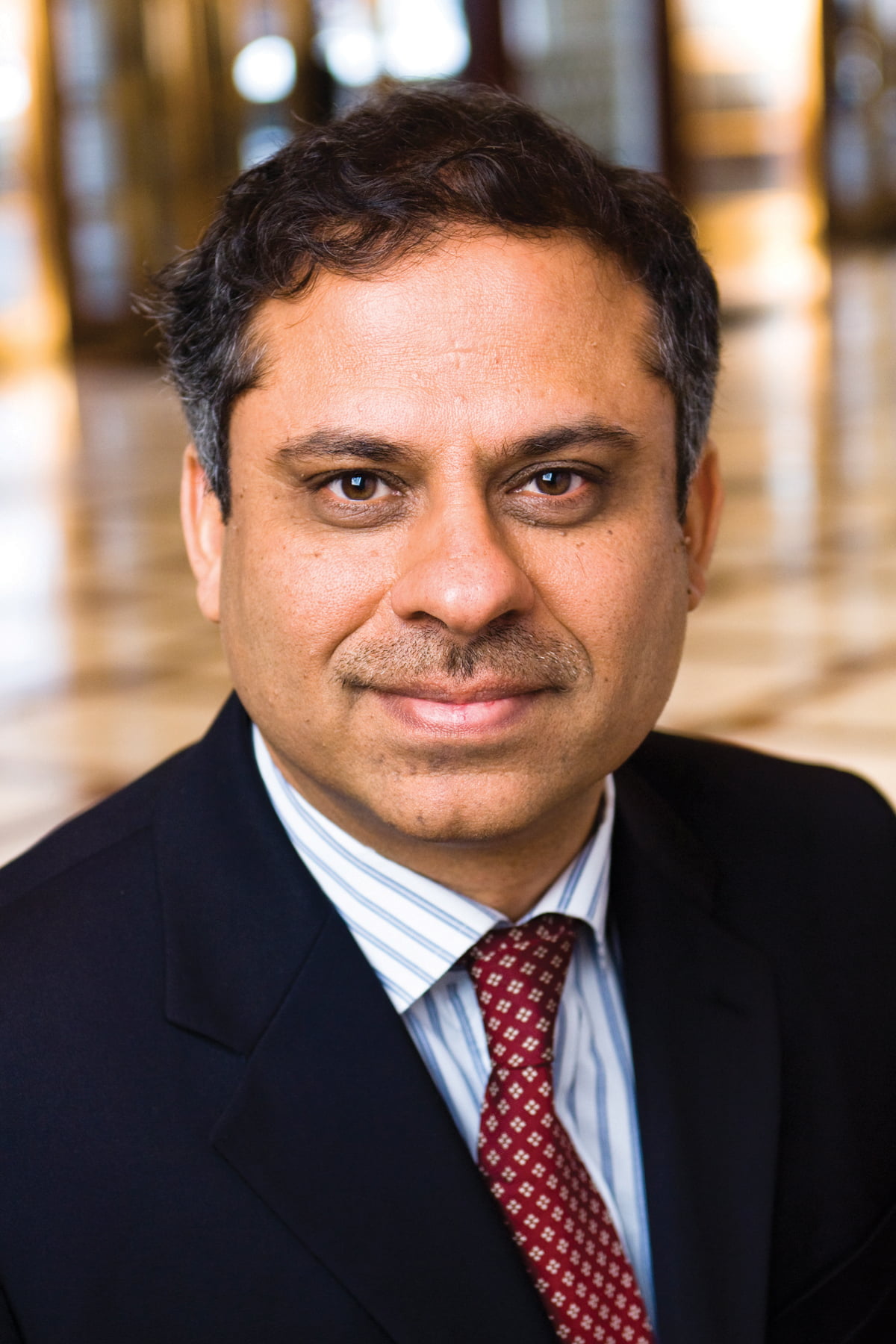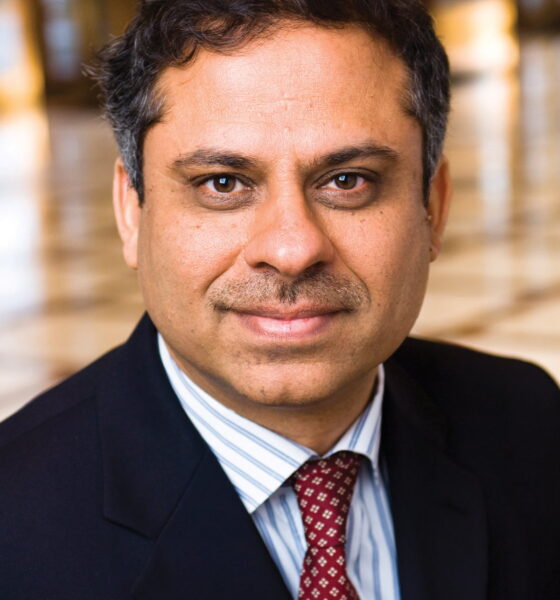

Features
Cleantech investment is the solution to market ‘urbanisation and industrialisation’
Vipin Ahuja, manager of the Allianz RCM Global EcoTrends Fund, spoke to Alex Blackburne about the growing need for clean technology investment, and why he thinks it is so important for future market growth.
In an era engulfed in global crises, economically and environmentally, we call upon innovative individuals, businesses and technologies to clean up the mess and propel us into an age of sustainability.
Vipin Ahuja, manager of the Allianz RCM Global EcoTrends Fund, spoke to Alex Blackburne about the growing need for clean technology investment, and why he thinks it is so important for future market growth.
In an era engulfed in global crises, economically and environmentally, we call upon innovative individuals, businesses and technologies to clean up the mess and propel us into an age of sustainability.
This is where cleantech comes in.
The Cleantech Group describe it as “new technology and related business models that offer competitive returns for investors and customers while providing solutions to global challenges”.
Since 2004, over a trillion dollars has been invested in the industry worldwide. International recognition from the likes of the Global Cleantech 100 and the World Future Energy Summit have allowed the sector to infiltrate mainstream agendas and captivate investors, entrepreneurs and corporations alike.
Much of its success has been down to the productivity of pioneering start-up companies that have subsequently gone on to transcend the non-cleantech competition, and look set to continue their outstanding success. And all because of the growing investment in the industry.
The Allianz RCM Global EcoTrends Fund is one of the largest clean technology funds in the world. The cleantech industry’s popularity can be lead directly to funds like this one.
“Our focus is clean technology”, says Vipin Ahuja, the fund’s manager.
“We’ve got three pillars on which we invest: eco-energy, pollution control and clean water.
“We look at energy companies – whether they’re reducing consumption or are renewable companies – and then we look at pollution control companies that are reducing not just climate change or carbon dioxide, but also sulphur, nitrogen and waste in general, and we also invest in clean water” he says.
Ahuja, who joined the company in 2009 and has 14 years of investment experience to his name, continued, explaining the EcoTrends Fund’s aim.
“The fund’s objective is growth”, he says.
“We are looking for tail winds in clean technology, and we think the companies in this area have longer term faster revenue growth and higher return profile compared to traditional companies that would be losing market share.”
On the face of it, the nature of Allianz’s fund sounds similar to the Ludgate Environmental Fund – an ethical fund that Blue & Green Tomorrow has previously profiled.
However, Ahuja is keen to point out the differences between the EcoTrends Fund and other similar investment opportunities.
“It’s not an ethical fund, but we do invest in companies that have sustainable business models”, he explains.
“We don’t do any positive or negative screening, but we do look for cleantech pure exposure as much as possible.
“If a company’s got 30 or 40% of its revenue coming from clean technology, then we’re happy to invest in them.”
Like other ethical funds across the sector, though, some of the positions that the EcoTrends Fund holds are incredibly exciting – from both a business and sustainability perspective.
There is Pall Corporation – filtration, separation and purification specialists from the US; Donaldson Company – an air filtration resource; and then automation companies like Danaher and Siemens.
“There is a strong trend towards increased automation, instrumentation or process control, especially in the budding markets”, Ahuja says.
“That’s a big area for us – filtration, industrial pollution control and waste water.
“We also like natural gas companies that are getting beaten right now because of the warm winters, but longer term, we think there is very attractive exposure there.”
Another company that the EcoTrends Fund has invested in is Jain Irrigation, an Indian firm that produces drip irrigation and sprinklers that improve water, nutrient and power consumption by factors of up to 60%.
Then there is Kingspan, an insulation company, and Polypore International, which makes separators for batteries.
Investment in these budding companies has made the EcoTrends Fund extremely valuable. It’s currently worth over $1 billion, and is performing admirably against its benchmark.
“We have a benchmark that represents our strategy called Environmental Technology 50 (ET50)”, Ahuja describes.
“Last year, we were ahead of that index by almost 11%.
“You could say it has been tough year for clean technology companies, so the performances aren’t that great in terms of absolute performance, but against cleantech the performance has been satisfactory.
“We hope in the future, we will have a better absolute performance, too.”
‘Generational opportunities’ in the cleantech industry is likely to see even better return in the future.
But why are funds like the EcoTrends Fund so important?
“We believe that the biggest challenge that the world is facing at this point of time is urbanisation and industrialisation in the evolving market”, states Ahuja.
“That’s coming at a cost, and fossil fuels by itself cannot meet that challenge.
“The pollution it’s creating and the scarcity of water are the things we invest in.”
Ahuja singled out some of the Western companies that Allianz’s fund invests in as the ones that can spur on the cleantech industry to even greater heights.
“They have the money, they have the need, and they are asking for these technologies and products a lot more”, he says.
“They have an attractive market that is growing rapidly.
“We believe that the companies that are involved in clean technology and providing solutions for our next phase of industrial revolution will grow faster and have a higher return profile.”
Through funds like this one, whole industries have the potential to be revolutionised to fit in with the impending sustainable revolution – a revolution that is both necessary and inevitable.
But ultimately, it’s down to individuals, like you, to give the funds the backing in order to achieve this goal. And it’s very simple to do this.
Have a look at the Allianz RCM Global EcoTrends Fund, or alternatively, get in touch with your financial adviser or fill in our online form and we’ll connect you to a specialist ethical adviser.


 Environment12 months ago
Environment12 months agoAre Polymer Banknotes: an Eco-Friendly Trend or a Groundswell?

 Features11 months ago
Features11 months agoEco-Friendly Cryptocurrencies: Sustainable Investment Choices

 Features12 months ago
Features12 months agoEco-Friendly Crypto Traders Must Find the Right Exchange

 Energy11 months ago
Energy11 months agoThe Growing Role of Solar Panels in Ireland’s Energy Future





























